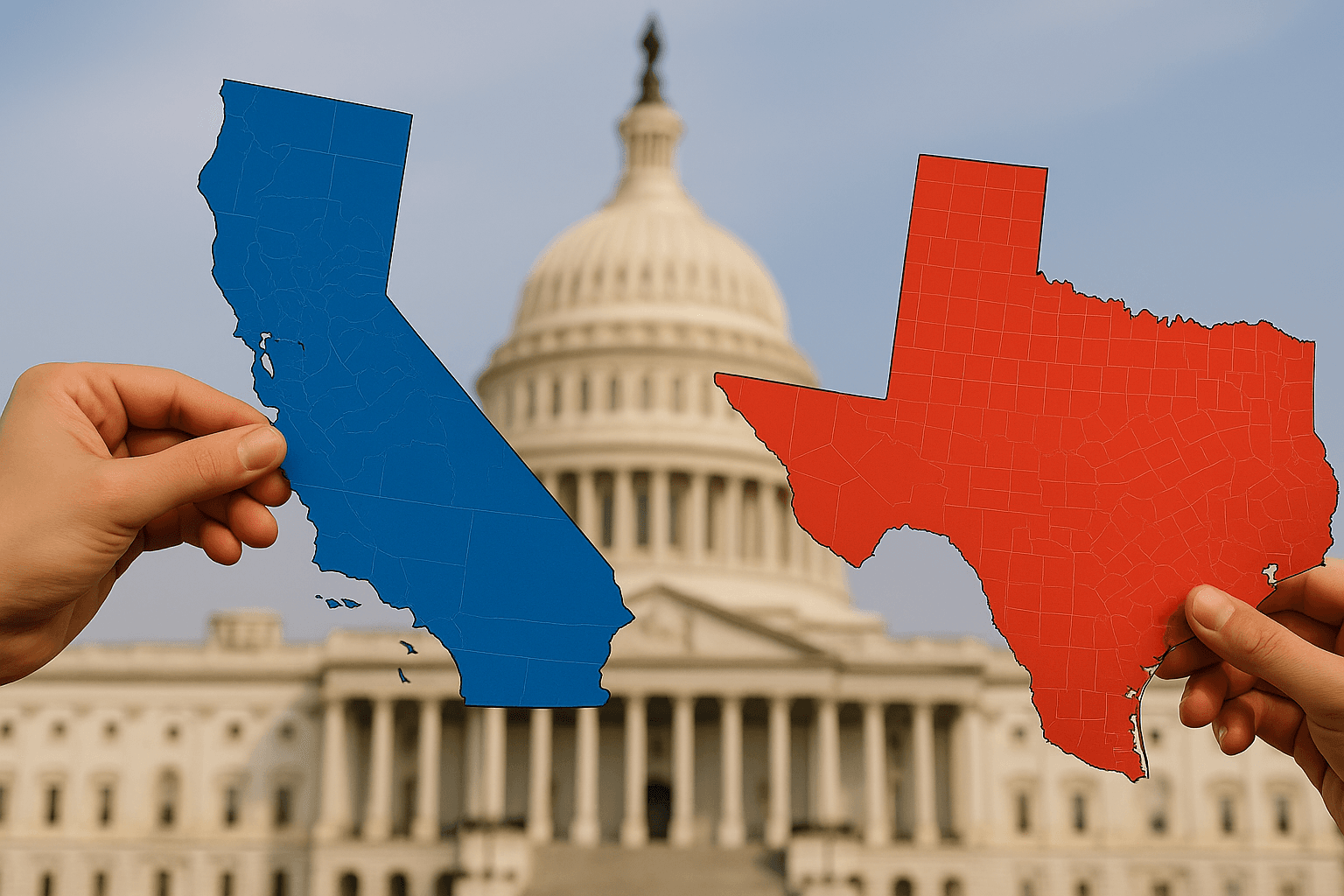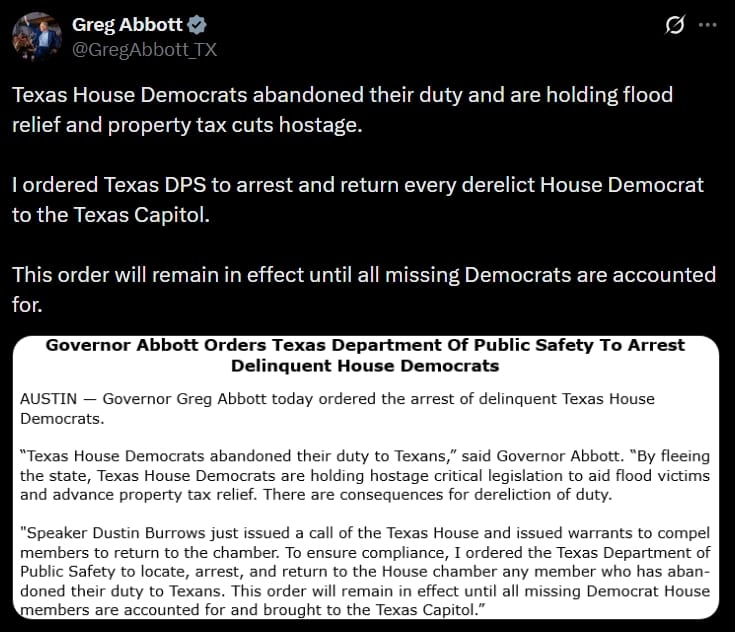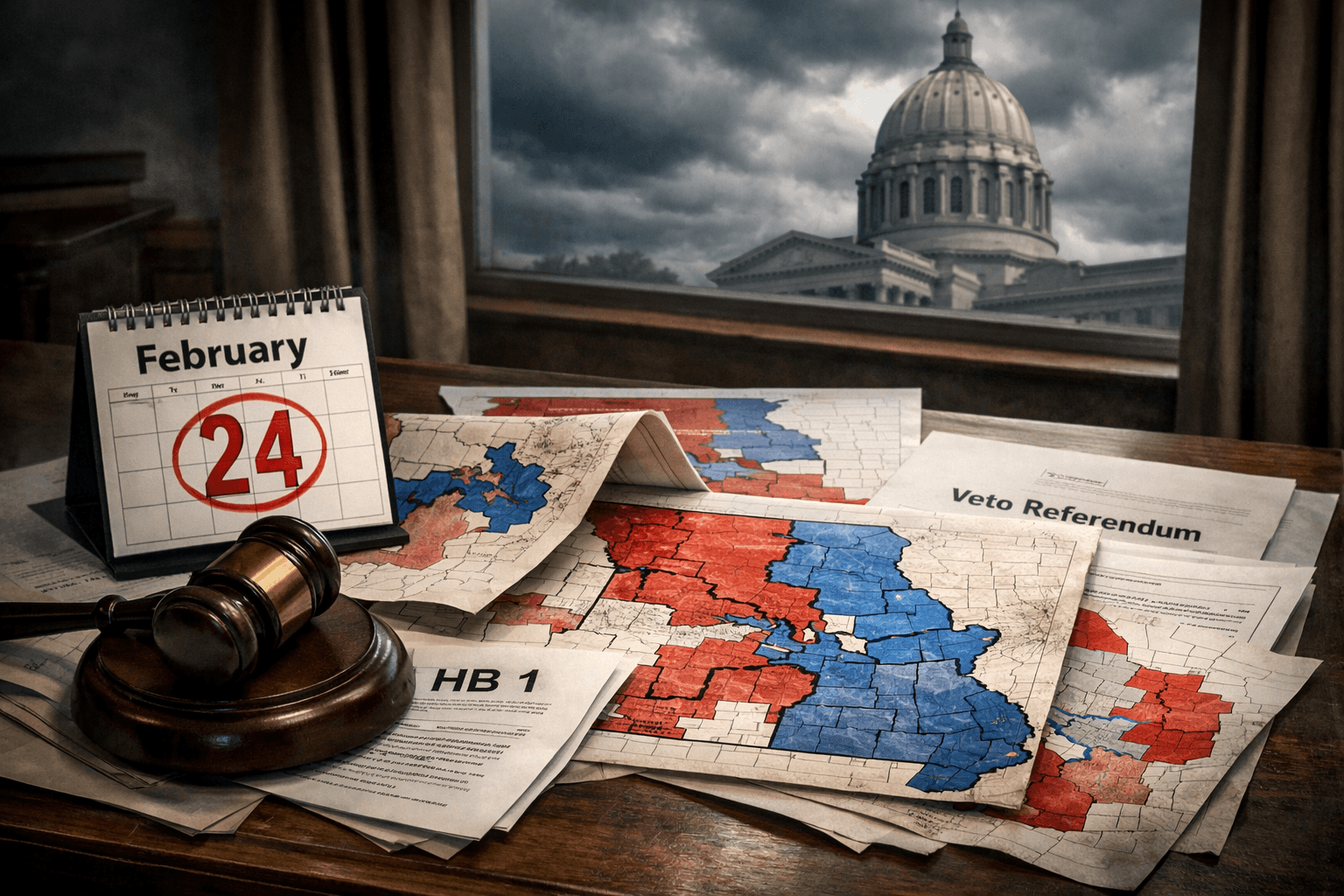The Redistricting War Is Here — One CA Republican Says It’s Time to Call It Off

WASHINGTON, D.C. – Texas Republicans have threatened to redraw their maps to protect their party’s majority in Congress. California Democrats have, in turn, threatened to respond with their own mid-decade redistricting to “fight fire with fire.”
As one IVN reader put it, “This kind of naked power grab is breaking down our trust and tolerance for each other.”
However, Republican California U.S. Rep. Kevin Kiley plans to introduce a bill Tuesday that effectively calls for a truce between the two major parties and – in his words – will “stop a damaging redistricting war from breaking out across the country.”
His bill would prohibit all mid-decade congressional redistricting and nullify any new maps adopted before the 2030 census. While he frames it as a response to Gov. Gavin Newsom’s threats to enact legislative redistricting, the bill would apply to all states.
Texas: Ground Zero in a Redistricting Battle Spiraling Out of Control
Most of the media’s focus has been on Texas, where Republican Gov. Greg Abbott added redistricting to a special legislative session that was initially called to regulate the state’s growing intoxicating hemp industry and address recent devastating floods in Central Texas.
The plan: add at least 5 Republican-safe congressional seats in line with the wishes of President Donald Trump.
In response, Texas House Democrats fled the state – relocating to Illinois and New York – to block quorum and stall the vote on new maps. Gene Wu, a Houston Democrat and Caucus Chair in the Texas House, said:
We’re doing this because we don’t have a choice. This is the last tool we have to stop Trump and stop the destruction of our communities.”
Abbott threatened to declare their seats vacant and has even called for their arrest. One headline in New York Magazine called the fight between the governor and state Democrats “a dangerous escalation.”

While communities in Central Texas look to lawmakers for relief, their plight is being used as political ammunition.
Abbott has accused Democrats of “holding hostage critical legislation to aid flood victims.” Democrats, editorial boards, and watchdog groups have accused Abbott of prioritizing redistricting over flood recovery.
Meanwhile, President Trump says he “got the highest vote in the history of Texas ... and we are entitled to five more seats."
California: Democrats Prepare Reciprocal Redistricting
Before Texas Republicans started to draw up new maps, California Gov. Gavin Newsom floated the idea of legislative override of the state’s independent redistricting commission or a special election to authorize new congressional maps, saying “two can play this game.”
While the Texas GOP seeks to carve out 5 additional seats for themselves, Newsom’s plan could eliminate 5 Republican seats in California.
Newsom has framed it explicitly as a triggered response to Texas Republicans: “It’s cause and effect… if Texas moves, then we may have to move forward.” He further warned that unchecked partisan mapping accelerates a race to the bottom in democracy.
However, he seems more than ready to put his foot on the gas.
Kiley, who has mostly steered away from criticizing his own party, called out Newsom for wanting to subvert the will of voters, who approved an independent redistricting commission back in 2010 to prevent this type of partisan scheming.
“Our [state] constitution specifically bars redistricting in the middle of the decade and it sets up an independent citizens commission for drawing district lines,” he said. “This was established by the voters themselves.”
They said, we don’t want politicians drawing lines for their own districts. That is an inherent conflict of interest.”
Critics of what is happening in Texas and California agree with Newsom on one thing: This is a race to the bottom, and it is going to spread across the U.S.
Redistricting proposals are surfacing in other Republican-led states such as Ohio, Missouri, and Indiana, where lawmakers could also act to protect their party’s majority in the House. But just like in California, states like New York are considering their own counter measures.
The partisan mindset is: “If you take our districts, we will take yours.”
Redistricting Has Always Been Used as a Political Weapon – And It’s Only Getting Worse
What voters are witnessing in the U.S. goes beyond regional political theater – it’s a nationwide escalation. The two-party system incentivizes a “win-at-all-costs” mentality, which includes redrawing election lines to preserve or expand party advantage.
Partisan gerrymandering has long been an issue in the U.S., one that reformers have sought to address with solutions like independent or citizen redistricting commissions. However, at the end of the day, the parties make the rules.
California voters adopted an independent redistricting commission to remove partisan gamesmanship from a process that should be about accurate and accountable representation. But if state lawmakers decide to undermine its intent, they can find a way to do it.
Similarly, in Missouri, when reformers passed a nonpartisan plan for redistricting, the legislature schemed to insert partisan interests back into the process – and were successful. This is not about fairness. It’s about power.
This is the reason Kiley’s bill is not likely to pass in Congress – even if it represents a metaphorical ceasefire, aimed at halting a national tit-for-tat before it becomes the new norm. Neither party will allow it with majority control at stake.
Still, one thing remains true:
The more the parties use redistricting as a political weapon, the more unstable and unrepresentative the democratic process becomes as voters are treated as nothing more than collateral damage.
 Shawn Griffiths
Shawn Griffiths







